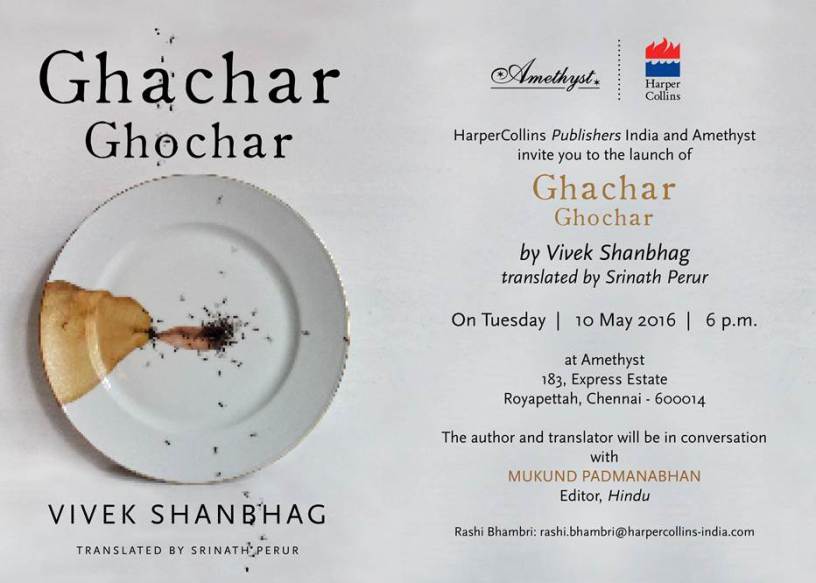Ghachar Ghochar is a fascinating psychological novella written by Kannada author Vivek Shanbhag and translated into English by Srinath Perur.
I’ve never been a big fan of book translations. After futile attempts to read Tamil literature’s magnum opus Ponniyin Selvan in its original format, I then tried multiple versions of its English translations. But unfortunately, I found that these translations come nowhere in capturing the essence that made the saga so special. So, I was a bit reluctant to pick this English translation of Vivek Shanbhag’s Ghachar Ghochar. Despite my reservations, I was pleasantly surprised by the excellent translation by Srinath Perur, with the book packed with wonderful scarce-used words like ‘compunction’. The book also features words like ‘iron box’ and ‘vessel washing’, which help make the book so authentically South Indian.
The book begins in Bangalore’s Coffee House, a place the narrator has no reason to be, although “who can admit to doing something for no reason in times like these, in a city as busy as this one?” I had pictured the coffee shop as Koshy’s Parade Café in Bangalore’s charming Church Street and was delighted to learn that Koshy’s was indeed the inspiration behind Coffee House.
The narrator tells us about his family, how he had lived with parents, his older sister Malati, and his father’s younger brother (Chikkappa) in a cramped, ant-infested house, before his chikkappa’s successful spice company helps transition them into a spacious bungalow. But, as the book says, “it’s not we who control money, it’s the money that controls us. When there’s only a little, it behaves meekly; when it grows, it becomes brash and has its way with us.” The transformation of the family, who had been content and happy living off a paltry income, nurturing and supporting each other, to pettiness and cruelty is showcased brilliantly.
This descent is best illustrated by two contrasting scenes. When they were still poor and had saved for months to replace their kerosene stove with cooking gas, the unveiling of the gas stove was marked with a sense of childlike wonder. The narrator’s mother jokingly declares that just because she can now prepare tea in 5 minutes, they cannot keep badgering her for tea. This was an endearing moment, marked with such pure innocence, which are soon lost, as indicated by their indifference to the unnecessary furniture they get for their new house.
The book uses the metaphor of invading ants (featured on the cover page as well) to portray the family’s insecurity towards outsiders. Their paranoia is allowed to fester so much that, years later, the narrator’s wife Anita is seen as an outsider who needed to be quashed. As the narrator seeks refuge in Coffee House at the end, contemplating on the corrupting influence of money, the book comes full circle. But as my friend noted, this deceptively unassuming book doesn’t offer closure for the readers, instead asking them to fill in the blanks themselves, with their outlook on life deciding whether the book has a happy ending or not.

Liked how you picked on the ant analogy!
LikeLiked by 1 person
Really interesting how you noted the parallel between Anita and the ants. Something that I hadn’t thought about 🙂
LikeLiked by 1 person
Wow.. Loved the review….this is one of the best book i read this year.
LikeLiked by 1 person
Thank you! This was one of my favorite reads as well.
LikeLike